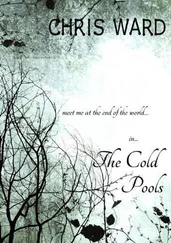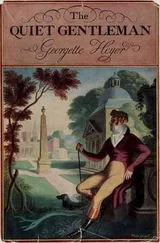“I appreciate the compliment,” Meyfarth said dryly.
“I didn’t mean—”
“But I’m not quite persuaded,” he went on. “The last time I saw you, you were a bit skeptical about my usefulness.”
Christopher looked away. “I wasn’t ready to be helped.”
“True enough. What’s changed?”
“Nothing. Except for the worse. And that’s what has to change. I don’t want to feel like this.”
“You said much the same thing a few weeks ago, in my office. But you broke your contract with me and walked out when it got tough.”
“I—” The quick defense died on his lips. “I guess I did. Old habits die hard.”
“Sometimes they don’t die at all,” Meyfarth said. “What assurance do I have that you’re serious this time?”
Knitting his brow and frowning, Christopher considered. “I don’t know. None. I have to hope you’ll trust me. Which comes harder the second time around, I suppose.”
Nodding, Meyfarth said, “You know that I’m going to go right back to the sore spots, right back to your father and your family.”
“I know. I just don’t know how much I’ll be able to help you.”
“Why is that, Chris?”
“Because I don’t know how much I know.”
“Ah,” said Meyfarth. “I’m confident that, at some level, you remember everything that’s important to remember.”
“How can you say that? You can’t know.”
“No, I can’t—not with complete certainty,” said Meyfarth. “But it’s something I’ve come to believe about people. Inside every one of us is the frightened four-year-old, the nine-year-old explorer, the restless adolescent, and the twenty-year-old dreamer we once were. Remembering is easy. It’s the forgetting that we have to practice.”
“It comes naturally enough to me.”
Meyfarth shook his head. “You’re self-taught, I assure you. The heart of your problem is the pretense that all you are is what you are now. You’ve been living unconnected to your past.”
“I just don’t archive things like other people do,” Christopher said defensively. “Look, I have trouble remembering what happened two years ago, let alone twenty. I wish I had more stories about my childhood. I wish I had more stories about my father. But I don’t. I’m lost when the conversation turns to people telling funny anecdotes on themselves. I just don’t remember that sort of thing. I don’t know what I was like when I was ten. And I don’t have anyone to help me remember.”
“You don’t need anyone,” Meyfarth said simply.
“I need something. You, anyway.”
Meyfarth shook his head. “ You know where the gold is buried. I can only guess. If you need a map, you have to look in your own life. Have you ever kept a diary? Letter archives? Any family video albums lying around?”
“No and no. Not many pictures.” He paused. “And when I look at them, I can only see this little boy that I can’t really remember being.”
“Because you won’t let yourself. If you were connected to your past, those pictures would make you feel , not remember,” said Meyfarth. “You’re a curious one, Chris. You don’t even get emotional about your emotions.”
“That’s not true—”
“It is. Which is why they all come out as anger.”
Christopher looked away.
“You need to be reconnected, Chris.”
“How do we do that?”
“ We don’t. You do.” Meyfarth pursed his lips. “I was hoping to get what I needed talking to you. But the trust is coming a little hard, Chris. I think you’re going to have to show me something before we can pick up our sessions.”
“What?”
“How long has it been since you talked to your father?”
“Uh—a few weeks.”
“Your sister?”
Wincing, Christopher admitted, “A couple of years.”
“Okay,” Meyfarth said, nodding. “Here’s my offer. I can slot you at two, Monday—if sometime between now and then, you give your sister a call and ask her what kind of kid you were. Or something equally risky. What do you say?”
Christopher’s wince deepened into a grimace. “We’re not close.”
“I didn’t expect that you were, considering.”
“This one’s not my doing. My sister isn’t exactly my biggest fan. I never have quite figured out why.”
“That doesn’t matter,” Meyfarth said. “Your sister holds a piece of you. Reach out and claim it back.”
Christopher met the arty’s gaze with a wondering look. “I never looked at it that way.”
“Probably she hasn’t, either.”
It was hard to believe that any piece of him which Lynn-Anne Aldritch might hold could be of much value. Because of their history, she was more like a cousin—a cousin who had seemed like a friend in their uncritical youth, but who had drifted away on the judgments of maturity. And all the growing up that seemed to matter had taken place in her absence.
Lynn-Anne was fifteen when Christopher was born, a dark-eyed, thin-bodied girl who rarely smiled, at least for a camera. The four of them—his father, Lynn-Anne, Deryn, and himself— were not together long, and Christopher remembered little of the time they were. Lynn-Anne left the B Street house when he was five, first taking an apartment in Portland, and then late admission to Bennington College, a continent away. And she never really came back into his life.
After Bennington, it was New York Metro for a year, Toronto for two, and then back to New England, settling at last in Bangor. Somewhere along the way, she replaced their father’s surname with their mother’s, bringing her in line with custom. She had never married, in fact had always lived alone, except for her first few months in Toronto, when she joined a household of women on exclusive Center Island.
Christopher remembered the trip to visit Lynn-Anne there, a memory highlighted by the quaint hubris of the CN Tower and the vertiginous delight of its upper lookout. There was a less vivid remembrance of an earlier trip to a weary, noisy New York.
She always sent something at Yule, never on his birthday. He went her one better and remembered both occasions, but his gift-giving was duty-driven and the gifts chosen almost at random—he knew so little of her life that he had no idea what would truly please her, and Deryn could offer little help.
Once every few months there would be an unexpected call or, if Lynn-Anne was in the middle of one of her depressions, a morose letter. He would answer with earnest but stilted missives which—at Deryn’s prodding—invariably contained an invitation to come home for a visit.
But the invitations went ignored and unanswered. As far as Christopher knew, only once in twenty-two years had Lynn-Anne returned to the West Coast—a decade ago, for the funeral of Grandmom Anne, Sharron Aldritch’s mother, in Seattle. But after coming five thousand klicks across the country, Lynn-Anne chose not to come the one small step farther to Oregon; she was back in Maine before either Christopher, then in school in San Francisco, or their father, at home in the ridge house, even knew of the death.
That was the break point. Perhaps understandably, the Aldritch-Martins had never taken Christopher into their hearts as a grandchild—the circumstances were unhappy, the link tenuous. Grandmom Anne was a name to him, little more, and he was not greatly surprised to learn he had been excluded.
But he would not have expected his father to be kept in the dark, or Lynn-Anne to join the conspiracy of silence. That was the first time Christopher realized how hard the lines were dividing what was left of the family, and the first time he realized that he and Lynn-Anne stood on opposite sides of one of those lines.
He missed one birthday, she the next Yule. With no protest or apology from either side, the remaining threads tying them together broke one by one. Without those threads, the semblance of kinship and friendship between them simply slipped away.
Читать дальше

![Nick Cracknell - The Quiet Apocalypse [= Island Zero]](/books/28041/nick-cracknell-the-quiet-apocalypse-island-zero-thumb.webp)










